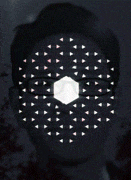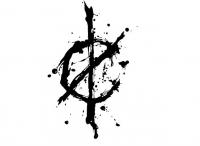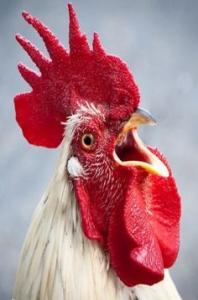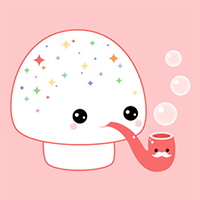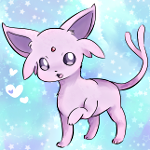Posted 29 October 2014 - 06:48 AM
The statistical validity of the MBTI as a psychometric instrument has been the subject of criticism. It has been estimated that between a third and a half of the published material on the MBTI has been produced for conferences of the Center for the Application of Psychological Type (which provides training in the MBTI) or as papers in the Journal of Psychological Type (which is edited by Myers–Briggs advocates).[37] It has been argued that this reflects a lack of critical scrutiny.[37][38] Many of the studies that endorse MBTI are methodologically weak.[38][39] A 1996 review by Gardner and Martinko concluded: "It is clear that efforts to detect simplistic linkages between type preferences and managerial effectiveness have been disappointing. Indeed, given the mixed quality of research and the inconsistent findings, no definitive conclusion regarding these relationships can be drawn."[38][39]
For example, some researchers expected that scores would show a bimodal distribution with peaks near the ends of the scales, but found that scores on the individual subscales were actually distributed in a centrally peaked manner similar to a normal distribution. A cut-off exists at the center of the subscale such that a score on one side is classified as one type, and a score on the other side as the opposite type. This fails to support the concept of type: the norm is for people to lie near the middle of the subscale.[33][38][40][41][42] "Although we do not conclude that the absence of bimodality necessarily proves that the MBTI developers’ theory-based assumption of categorical “types” of personality is invalid, the absence of empirical bimodality in IRT-based MBTI scores does indeed remove a potentially powerful line of evidence that was previously available to “type” advocates to cite in defense of their position." [42]
In 1991, the National Academy of Sciences committee reviewed data from MBTI research studies and concluded that only the I-E scale has high correlations with comparable scales of other instruments and low correlations with instruments designed to assess different concepts, showing strong validity. In contrast, the S-N and T-F scales show relatively weak validity. The 1991 review committee concluded at the time there was "not sufficient, well-designed research to justify the use of the MBTI in career counseling programs".[43] This study based its measurement of validity on "criterion-related validity (i.e., does the MBTI predict specific outcomes related to interpersonal relations or career success/job performance?)."[43] Studies have found that there is insufficient evidence to make claims about utility, particularly of the four letter type given after the test.[38]
The accuracy of the MBTI depends on honest self-reporting by the person tested.[8]:52–53 Unlike some personality measures, such as the Minnesota Multiphasic Personality Inventory or the Personality Assessment Inventory, the MBTI does not use validity scales to assess exaggerated or socially desirable responses.[44] As a result, individuals motivated to do so can fake their responses,[45] and one study found that the MBTI judgment/perception dimension correlates with the Eysenck Personality Questionnaire lie scale.[46] If respondents "fear they have something to lose, they may answer as they assume they should."[8]:53 However, the MBTI ethical guidelines state, "It is unethical and in many cases illegal to require job applicants to take the Indicator if the results will be used to screen out applicants."[29] The intent of the MBTI is to provide "a framework for understanding individual differences, and … a dynamic model of individual development".[47]
Terminology
The terminology of the MBTI has been criticized as being very "vague and general",[48] so as to allow any kind of behavior to fit any personality type, which may result in the Forer effect, where individuals give a high rating to a positive description that supposedly applies specifically to them.[20][38] Others argue that while the MBTI type descriptions are brief, they are also distinctive and precise.[49]:14–15 Some theorists, such as David Keirsey, have expanded on the MBTI descriptions, providing even greater detail. For instance, Keirsey's descriptions of his four temperaments, which he correlated with the sixteen MBTI personality types, show how the temperaments differ in terms of language use, intellectual orientation, educational and vocational interests, social orientation, self-image, personal values, social roles, and characteristic hand gestures.[49]:32–207
Factor analysis
With regard to factor analysis, one study of 1291 college-aged students found six different factors instead of the four used in the MBTI.[50] In other studies, researchers found that the JP and the SN scales correlate with one another.[33]
Correlates
According to Hans Eysenck: "The main dimension in the MBTI is called E-I, or extraversion-introversion; this is mostly a sociability scale, correlating quite well with the MMPI social introversion scale (negatively) and the Eysenck Extraversion scale (positively) (Eysenck and Eysenck, 1985). Unfortunately, the scale also has a loading on neuroticism, which correlates with the introverted end. Thus introversion correlates roughly (i.e. averaging values for males and females) -.44 with dominance, -.24 with aggression, +.37 with abasement, +.46 with counselling readiness, -.52 with self-confidence, -.36 with personal adjustment, and -.45 with empathy. The failure of the scale to disentangle Introversion and Neuroticism (in fact there is no scale for neurotic and other psychopathological attributes in the MBTI) is its worst feature, only equalled by the failure to use factor analysis in order to test the arrangement of items in the scale."[18]
Reliability
Some researchers have interpreted the reliability of the test as being low, particularly with regards to the test-retest reliability of the test. Studies have found that between 39% and 76% of those tested fall into different types upon retesting some weeks or years later,[38][41] and large numbers of individuals have found that they get different classifications when retaking the test after just five weeks. There is also strong evidence that the different scales are correlated, and not independent as claimed.[38] In Fortune Magazine on May 15, 2013, an article on the test, entitled "Have we all been duped by the Myers-Briggs Test", said that:
"The interesting -- and somewhat alarming -- fact about the MBTI is that, despite its popularity, it has been subject to sustained criticism by professional psychologists for over three decades. One problem is that it displays what statisticians call low "test-retest reliability." So if you retake the test after only a five-week gap, there's around a 50% chance that you will fall into a different personality category compared to the first time you took the test."
The consequence is that the scores of two people labelled "introvert" and "extravert" may be almost exactly the same, but they could be placed into different categories since they fall on either side of an imaginary dividing line.[51]
One study reports that the MBTI dichotomies exhibit good split-half reliability; however, the dichotomy scores are distributed in a bell curve, and the overall type allocations are less reliable. Also, test-retest reliability is sensitive to the time between tests. Within each dichotomy scale, as measured on Form G, about 83% of categorizations remain the same when individuals are retested within nine months, and around 75% when individuals are retested after nine months. About 50% of people tested within nine months remain the same overall type, and 36% remain the same type after more than nine months.[52] For Form M (the most current form of the MBTI instrument), the MBTI Manual reports that these scores are higher (p. 163, Table 8.6).
In one study, when people were asked to compare their preferred type to that assigned by the MBTI assessment, only half of people picked the same profile.[53] Critics also argue that the MBTI lacks falsifiability[citation needed], which can cause confirmation bias in the interpretation of results.
A number of scholars argue that criticisms regarding the MBTI mostly come down to questions regarding the validity of its origins, not questions regarding the validity of the MBTI's usefulness.[54] Others argue that the MBTI can be a reliable measurement of personality; it just so happens that "like all measures, the MBTI yields scores that are dependent on sample characteristics and testing conditions".[55]
![]() )
)



